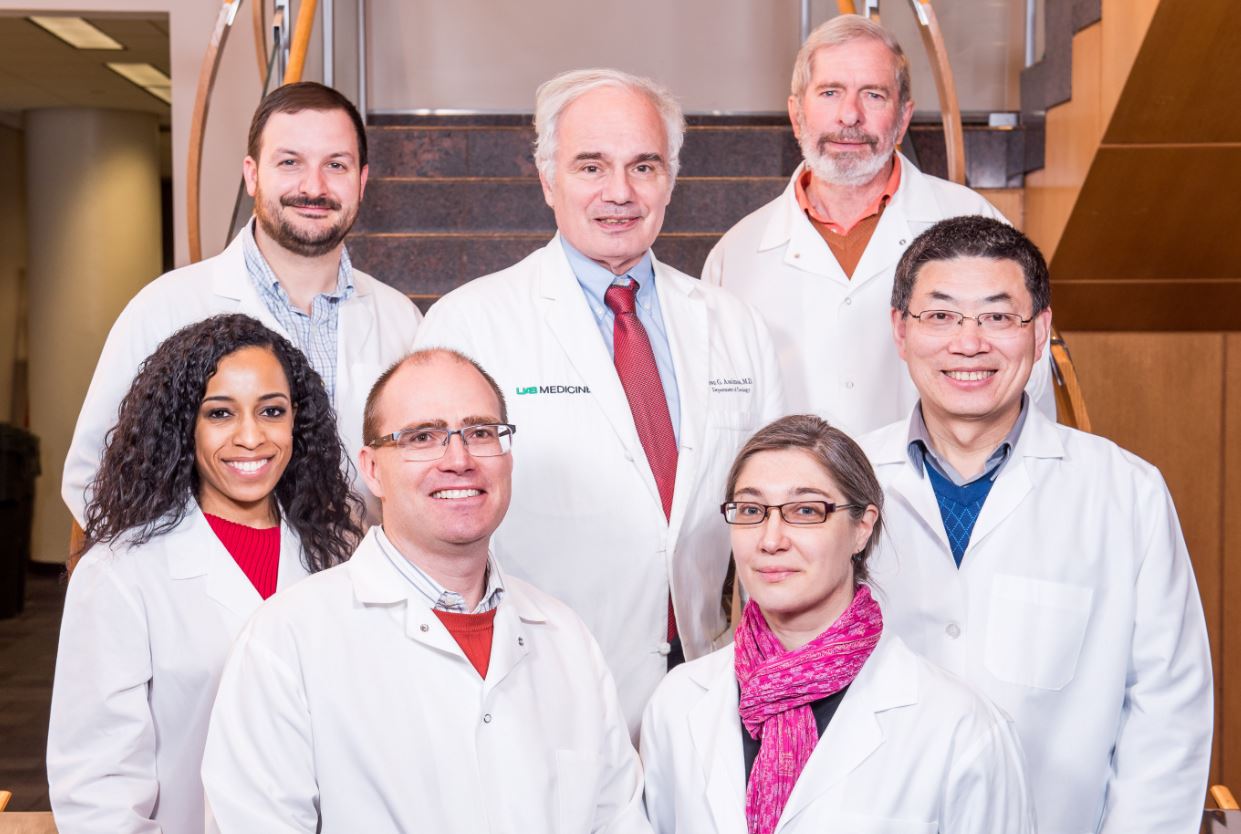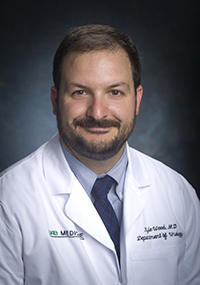 The prevalence of kidney stone disease has been increasing in the United States, now afflicting approximately 10 percent of the population and costing an estimated $10 billion per year. That's why the UAB Department of Urology launched the Kidney Stone Research Lab in 2012. The program is one of the largest of its kind in the United States.
The prevalence of kidney stone disease has been increasing in the United States, now afflicting approximately 10 percent of the population and costing an estimated $10 billion per year. That's why the UAB Department of Urology launched the Kidney Stone Research Lab in 2012. The program is one of the largest of its kind in the United States.
As a team, our researchers focus on basic, translational and clinical research in hopes of preventing kidney stone disease. The most common type of stone is composed of calcium oxalate and is a major focus of our research. This includes the body's handling and making of oxalate, methods of inhibiting its synthesis, the role of the fecal microbiome in kidney stone formation and the impact of mitochondrial dysfunction in stone development. We also preform studies on the body's handling of calcium relevant to kidney stone formation.
The mission of the laboratory is to continue to pursue novel research and therapies, understand pathphysiological causes and implement strategies for kidney stone prevention. Using both basic science and translational research we also strive to understand the mechanisms that contribute to urological disorders and use our scientific findings to mitigate and/or prevent disease in patients.
In pursuit of this mission, the Kidney Stone Research Laboratory has created collaboration with the UAB Nutrition and Obesity Research Center, the UT Soutwestern Department of Urology, and the Charles and Jane Pak Center for Mineral Metabolism and Clinical Research. With the expertise of all involved, we hope to bring clarity to obesity’s contribution to kidney stone disease.
Principal Investigators
Dean Assimos, MD.
Dr. Assimos has been engaged in clinical, translational and basic science research pertaining to the development of kidney stones for many years. His research focuses on the body's synthesis and handling of oxalate. He also conducts studies on patients with cystinuria, a rare genetic disorder that is associated with the development of cystine stones.
 John Knight, Ph.D.
John Knight, Ph.D.
Dr. Knight's primary research focus is to examine the intestinal specialist oxalate degrading organism, O. formigenes, and its role in reducing the risk of calcium oxalate kidney stone disease. Human studies, gnotobiotic mice, and state of the art ion chromatography/mass spectrometry, proteomic and RNAseq methods are utilized in the research.
 Tanecia Mitchell, Ph.D.
Tanecia Mitchell, Ph.D.
Dr. Mitchell's research focuses on understanding the role of mitochondrial function, oxidative stress and inflammation in immune cells during kidney stone disease and interstitial cystitis/painful bladder syndrome.

Sonia Fargue, MD., Ph.D.
Dr. Fargue's research focuses on primary hyperoxaluria syndromes and the various precursors and their contributions to oxalate.
Kyle Wood, MD.
Dr. Wood is a surgeon who specializes in kidney stone treatment. His research focuses on novel therapies in kidney stone disease and obesity and its role in kidney stones.
Laboratory Location, Resources, and Equipment
The UAB Department of Urology Kidney Stone Research Lab is housed in the Kaul Genetics Research Building on the 8th floor in the heart of the UAB medical campus.
We have five ion chromatography systems, three of which are coupled to mass spectrometers, and two HPLC systems that can be set up for either UV/VS, fluorescent or electrochemical detection. In addition, we have a Medica EasyRA Clinical Analyzer that we use for many of our clinical studies as well as a number of other pieces of equipment that help drive our research forward.
Other Resources: http://www.uab.edu/proteomics/msuab.php
Contact Us
Physical Address
University of Alabama at Birmingham
Hugh Kaul Genetics Building, 8th Floor
720 20th Street South
Birmingham, AL 35294
Mailing Address
Kaul 816
1720 2nd Ave South
Birmingham, AL 35294-0024